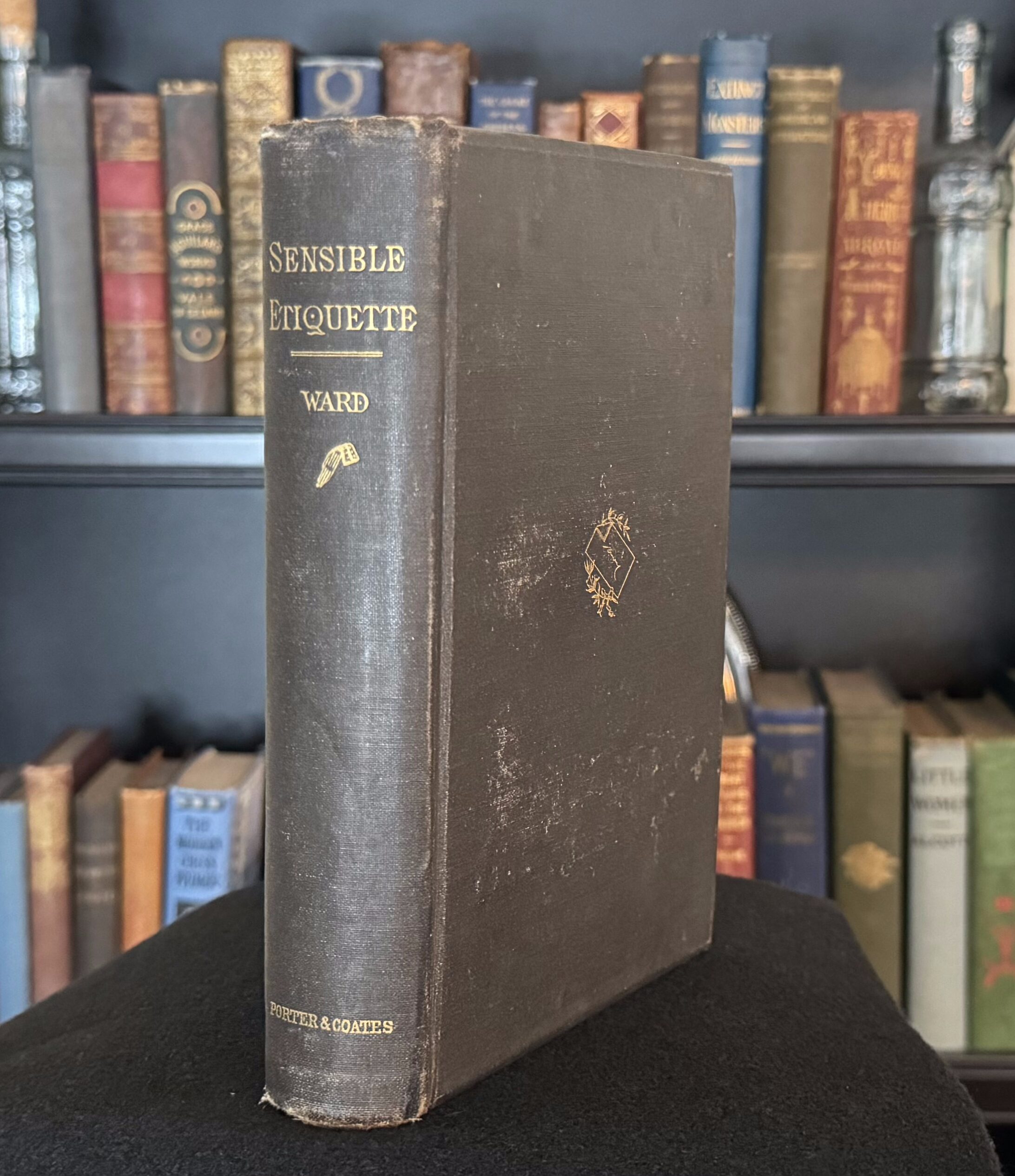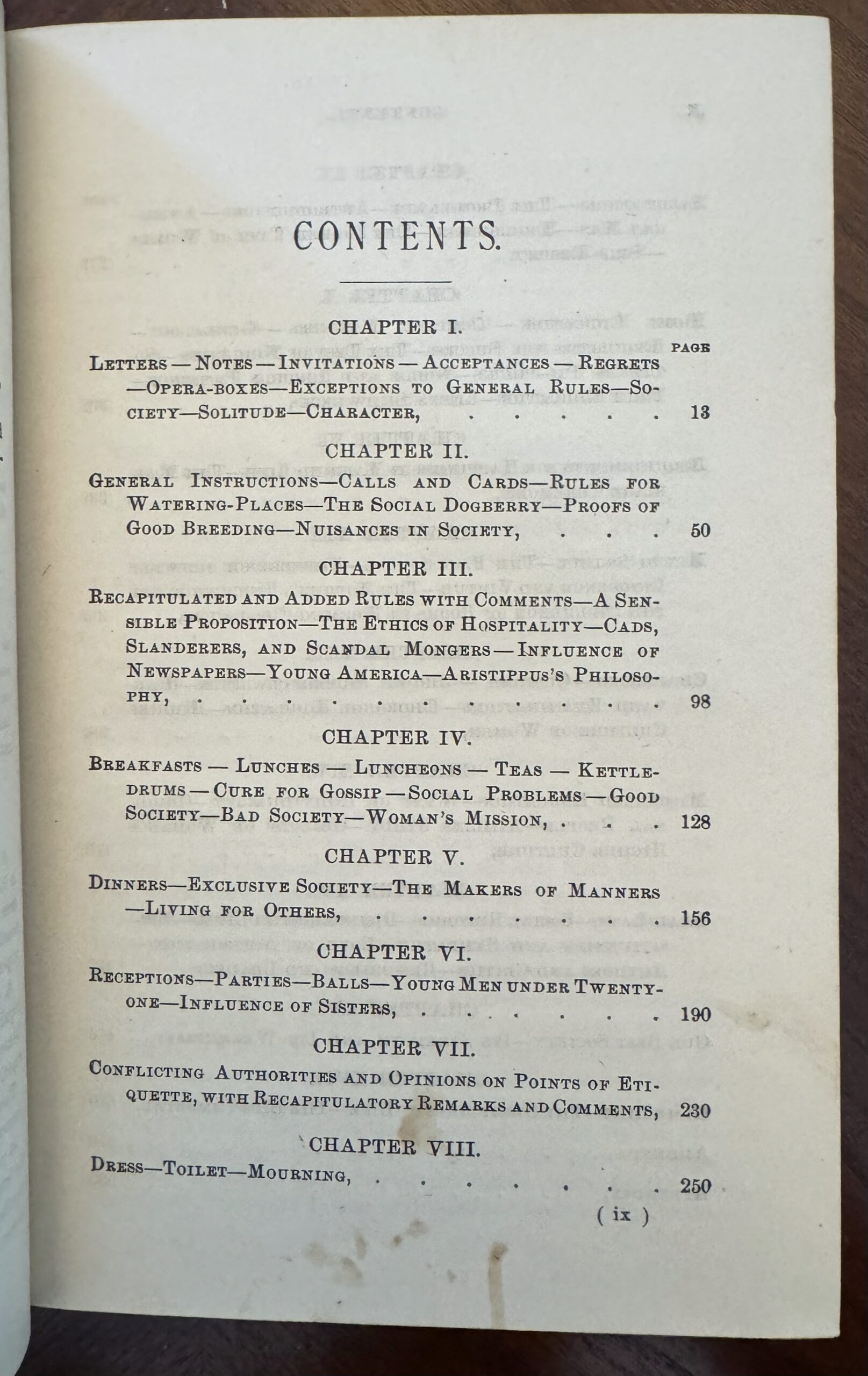- Title: Sensible Etiquette of the Best Society
- Author: H. O. Ward
- Publisher: Porter and Coates
- Estimated year of printing: 1878
Notes:
Eighteenth edition
Copyright 1878
If I were to summarize my book collection in one phrase, it would be “time capsules.” I love books that are time capsules for the period in which they were published. That often means science books, politics, religion — and etiquette books.
This is an etiquette book from 1878, published in the United States, aimed at documenting the proper etiquette for those that were part of “high society”. It’s a fascinating read — one of the most interesting books in my collection to sit and read. It covers all sorts of topics, including balls (there’s a specific prescribed order for dances, and men should not dwell too long around one woman) and dinners (don’t apologize if you break a plate, and waiters should wear special shoes so they don’t make noise).
An enormous amount of text is devoted to describing the etiquette for “calling cards”, a concept that doesn’t really exist today but was apparently taken very seriously in the 1800s. Calling cards were cards with a person’s name and address which could be left at someone’s house to indicate that you want to speak or get together. There’s an incredibly complex set of rules around there — who can leave them with who, how to address them, proper times for responding, how to decline invitations, when to pay a visit if you choose, etc. There’s at least 50 pages dedicated entirely to the rules of calling cards, and they are a recurring topic that comes up in the middle of other topics (after attending a ball at someone’s house, how long do you have before leaving a calling card as a “thank you”?).
It’s also an interesting time capsule of antiquated ideas. For example, a brief section discusses the idea that women should not desire the right to vote, as they already have a great deal of power over men. Indeed, many of the advice here is aimed squarely at women — men get off much easier, with guidelines about whether they should leave their walking stick at the door or bring it in.
The author, H. O. Ward, is actually a pen name for Clara Sophia Jessup Bloomfield-Moore (1824 – 1899), who was born in Westfield, Massachusetts, and moved to Philadelphia upon marriage. She was a philanthropist who organized relief efforts during the American Civil War. She wrote many books on a wide variety of topics, including several on etiquette. Her guiding philosophy was that harmony was the essence of good manners.
Historical context:
When this book was published in 1878, Rutherford B. Hayes was President, as a result of the 1876 Presidential election, one of the most contentious and disputed elections in American history. Several states filibustered the counting of their electoral votes, which left an undecided election. A compromise between the two parties in 1877 ended the filibuster, allowing the election to conclude, with Republican Hayes winning the electoral college despite losing the popular vote. In return, Republicans agreed to end Reconstruction and remove federal troops from southern states.




